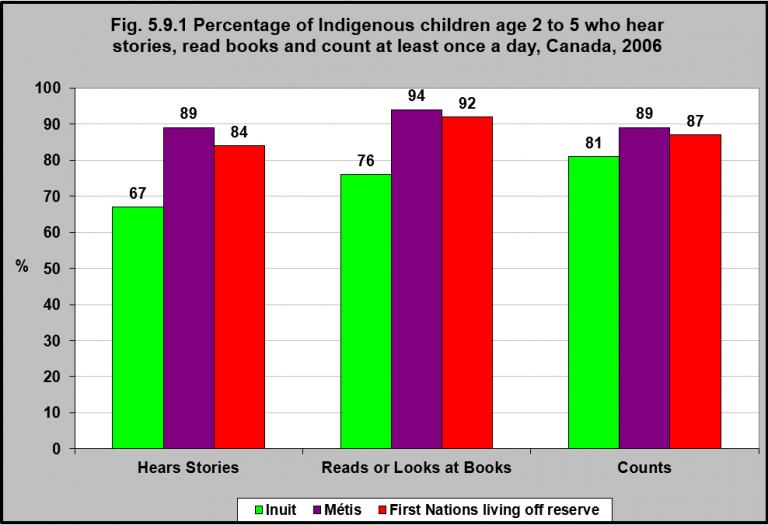Percentage of Indigenous children age 2 to 5 who hear stories, read books and count at least once a day, Canada, 2006

Source: CICH graphic created using data adapted from Statistics Canada. 2006 Aboriginal Children`s Survey. http://www.statcan.gc.ca/pub/89-634-x/89-634-x2008005-eng.htm -accessed July 17, 2017.
In 2006, primary caregivers reported that over 80% of Inuit children, Métis children and First Nations children living off reserve age 2 to 5 practiced their numeracy skills once a day through counting.
A majority also read or looked at books daily and heard stories.
Inuit children age 2 to 5 read or looked at books and heard stories less often than Métis children and First Nations children living off reserve the same age.
Implications
Early learning experiences play a key role in children’s brain development and affect a child’s future physical, cognitive, emotional and social development.1 They are important for helping children learn about words, language and culture, and assist in the development of literacy skills and healthy attitudes towards learning. Oral communication and storytelling are integral parts of Indigenous culture, and are used by parents and grandparents to transmit history, traditional knowledge, values and beliefs to their children.2
1Encyclopedia on Early Childhood Development. (2011). Importance of early childhood development. http://www.child-encyclopedia.com/importance-early-childhood-development -accessed October 11, 2017.
2Government of Canada. (2011). What do we know about the well-being of young Aboriginal children in Canada. In The well-being of Canada’s young children (pp. 71-76). Ottawa, ON: Human Resources and Skills Development Canada, the Public Health Agency of Canada, and Indian and Northern Affairs.
